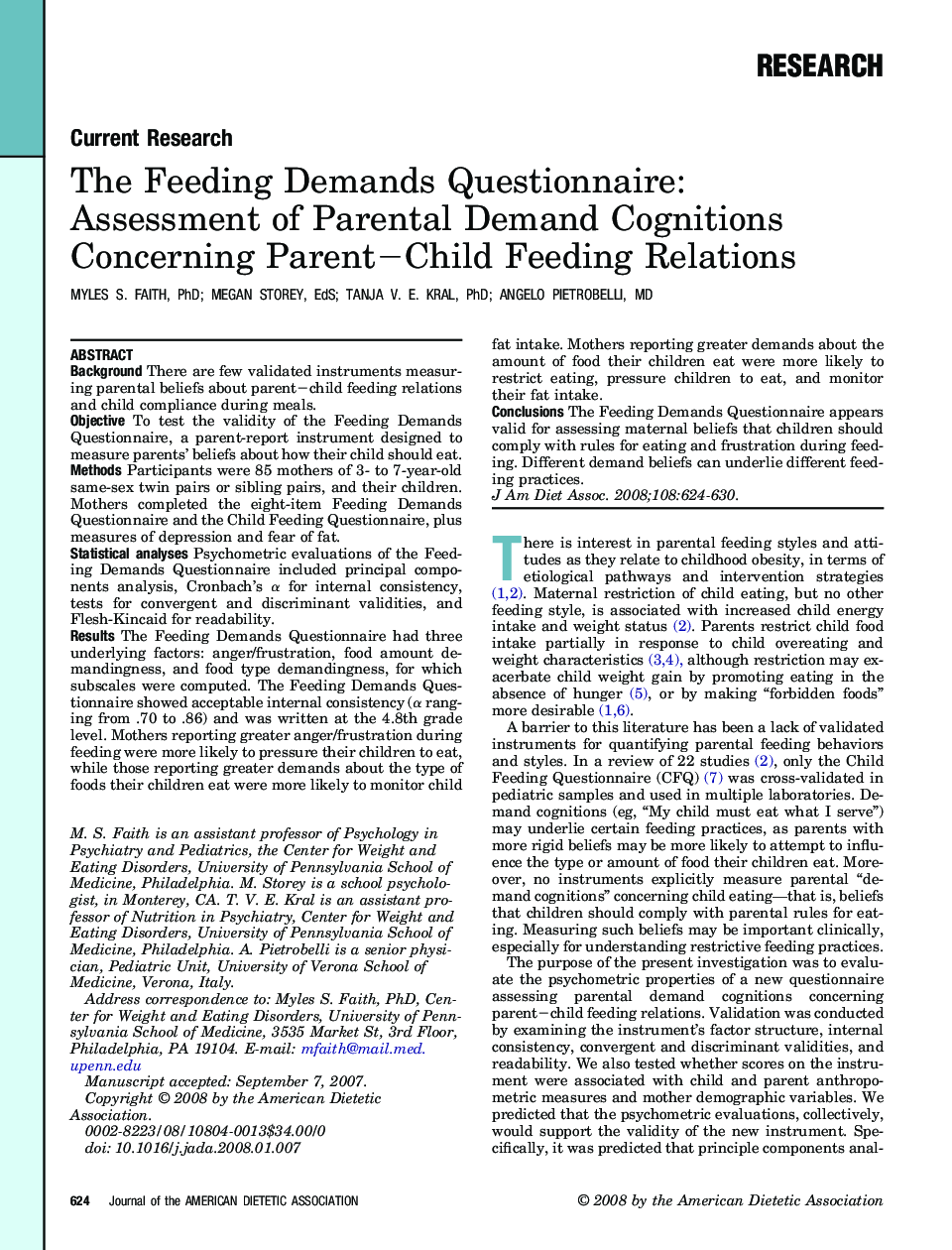| Article ID | Journal | Published Year | Pages | File Type |
|---|---|---|---|---|
| 2655421 | Journal of the American Dietetic Association | 2008 | 7 Pages |
BackgroundThere are few validated instruments measuring parental beliefs about parent−child feeding relations and child compliance during meals.ObjectiveTo test the validity of the Feeding Demands Questionnaire, a parent-report instrument designed to measure parents’ beliefs about how their child should eat.MethodsParticipants were 85 mothers of 3- to 7-year-old same-sex twin pairs or sibling pairs, and their children. Mothers completed the eight-item Feeding Demands Questionnaire and the Child Feeding Questionnaire, plus measures of depression and fear of fat.Statistical analysesPsychometric evaluations of the Feeding Demands Questionnaire included principal components analysis, Cronbach’s α for internal consistency, tests for convergent and discriminant validities, and Flesh-Kincaid for readability.ResultsThe Feeding Demands Questionnaire had three underlying factors: anger/frustration, food amount demandingness, and food type demandingness, for which subscales were computed. The Feeding Demands Questionnaire showed acceptable internal consistency (α ranging from .70 to .86) and was written at the 4.8th grade level. Mothers reporting greater anger/frustration during feeding were more likely to pressure their children to eat, while those reporting greater demands about the type of foods their children eat were more likely to monitor child fat intake. Mothers reporting greater demands about the amount of food their children eat were more likely to restrict eating, pressure children to eat, and monitor their fat intake.ConclusionsThe Feeding Demands Questionnaire appears valid for assessing maternal beliefs that children should comply with rules for eating and frustration during feeding. Different demand beliefs can underlie different feeding practices.
